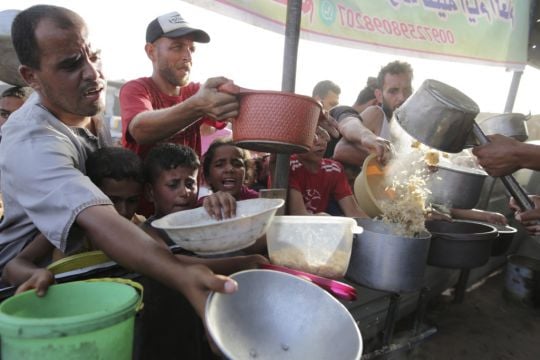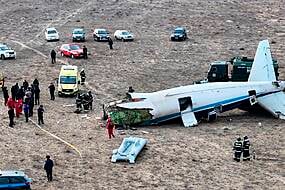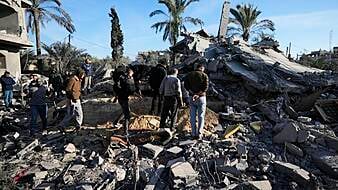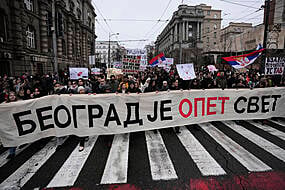Israel has said the United Nations, the main aid provider in war-ravaged Gaza, is yet to “take full advantage” of a new route meant to ease the flow of aid into the enclave.
On Sunday, the military announced a “tactical pause” in daytime fighting along roads leading from a main goods crossing to a north-south highway.
The route is meant to help address a backlog of aid waiting for pickup on the Gaza side of the crossing.
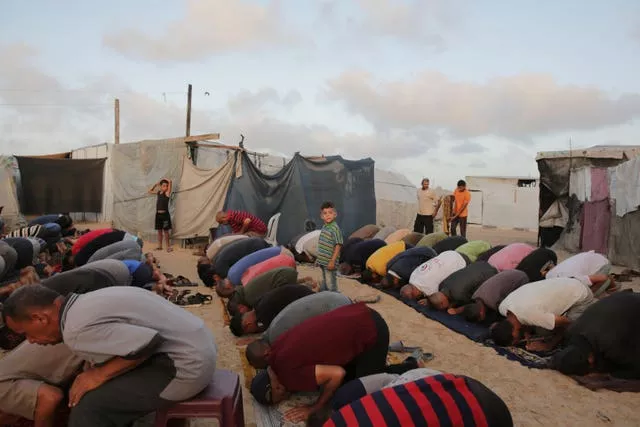
“We have not seen the UN take full advantage of this step,” said Shimon Freedman, a spokesman for COGAT, an Israeli defence body that oversees aid distribution in Gaza.
Mr Freedman was speaking at a briefing for reporters at the Kerem Shalom crossing.
Jens Laerke, spokesman for the UN humanitarian office, said workers on the ground were unable to use the route on Sunday, blaming a breakdown in law and order in the territory.
At the Israeli briefing, officials did not say how many trucks had made use of the route.
Mr Freedman said the route would have military presence and Israeli military spokeman Rear Admiral Daniel Hagari said Israel would “make sure the road is safe”.
Israeli authorities have continually said the lack of aid reaching desperate Palestinians in Gaza is due to the failure of the UN to distribute supplies within the war-stricken territory.
The UN welcomed Israel’s announcement of a “tactical pause” in fighting on some roads in Gaza, and is hopeful this will lead to Israeli authorities lifting all obstacle to aid deliveries for all of the territory.
“As we have reiterated, humanitarian operations in Gaza must be fully facilitated, and all impediments must be lifted,” UN deputy spokesman Farhan Haq told The Associated Press on Monday. “We need to be able to deliver aid safely throughout Gaza.”
Meanwhile, the UN has blamed Israel for enforcing unnecessary and drawn-out inspection procedures at the crossing, and said that fighting in Gaza, along with violence and truck looting, has hampered their distribution efforts.
Freedman said there were more than 1,000 trucks on the Gaza side of the crossing waiting to be picked up for delivery.

A UN official, who spoke on the condition of anonymity, said there were persistent concerns with law and order along the roads despite Israeli assurances that it was safe for trucks to travel.
International humanitarian officials have repeatedly said deliveries are impeded by Israeli inspections, ongoing fighting, and desperate residents taking cargo off aid trucks. Israeli ground troops have been operating in the southern city of Rafah since early May.
Meanwhile, Israel’s Defence Ministry said on Monday that the country made record sales last year in defence exports.
The Ministry said the country made 13 billion dollars in sales in 2023, a period that includes the Hamas attack against Israel on October 7 and the first three months of the war it sparked.
With the war now stretching into its ninth month and with no end in sight, the figure may not entirely reflect the impact of the war on Israel’s ability to sell defence products to foreign countries.
Israel has faced mounting global isolation over its conduct during the war in Gaza.
On Monday, a major defence and security industry show outside Paris said a French court has banned Israeli exhibitors from participating, following a government decision on the matter.
The ministry said a third of the exports were missile, rocket and air defence systems.
They also included radar, weapon launchers and cyber systems, among others.
Nearly half of exports went to Asia and the Pacific region, while 35% went to Europe, the ministry said, adding that 3% of exports went to Arab countries that normalised ties with Israel over recent years.
